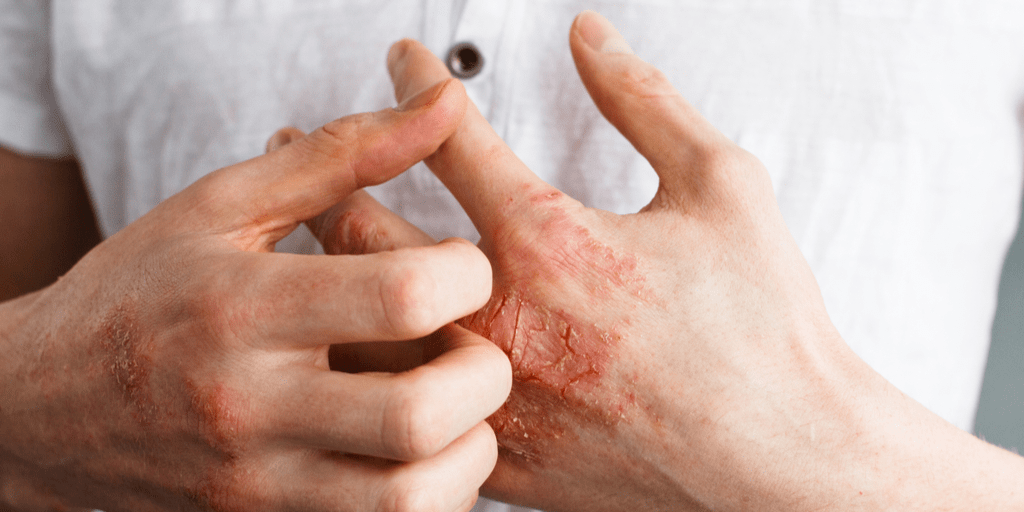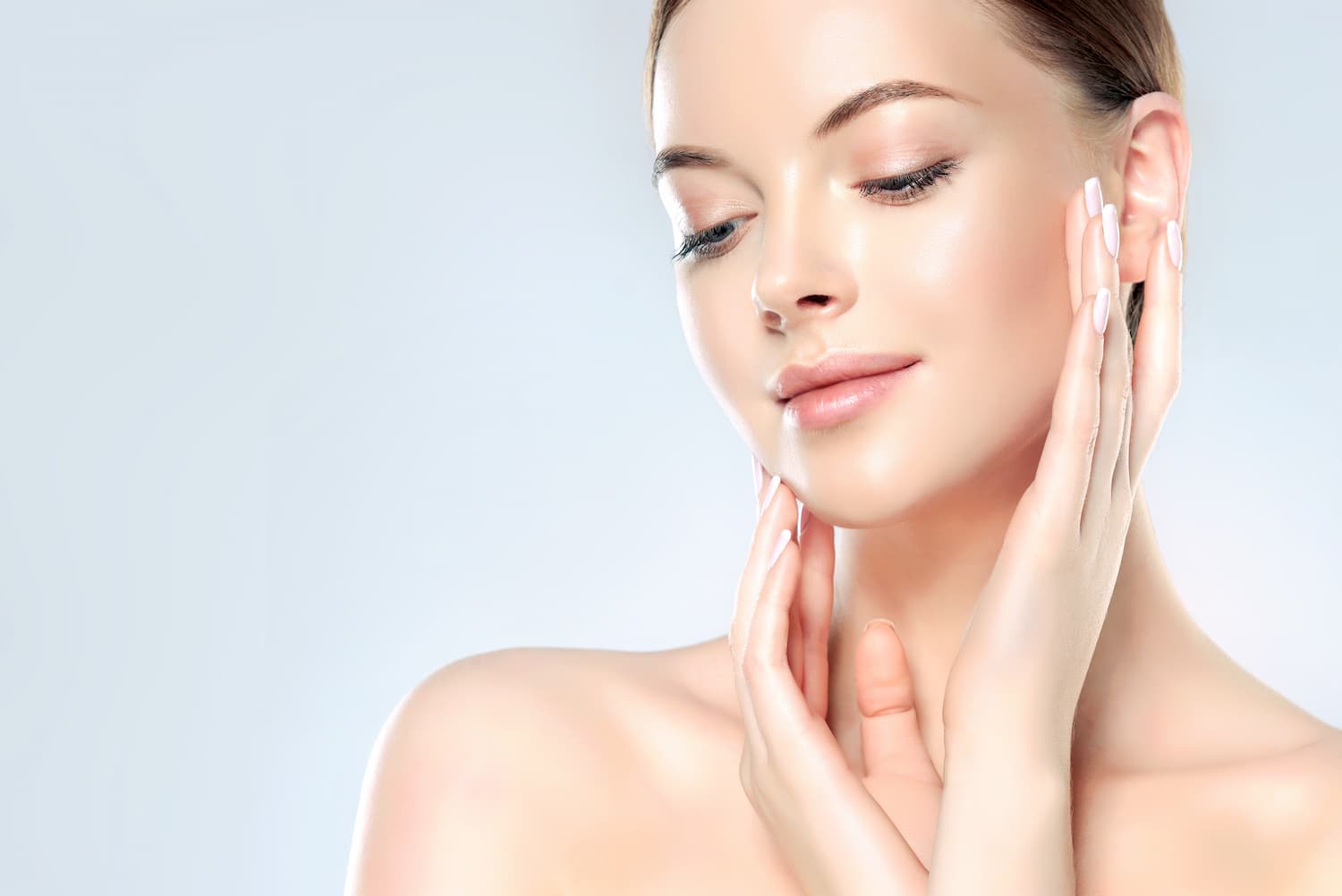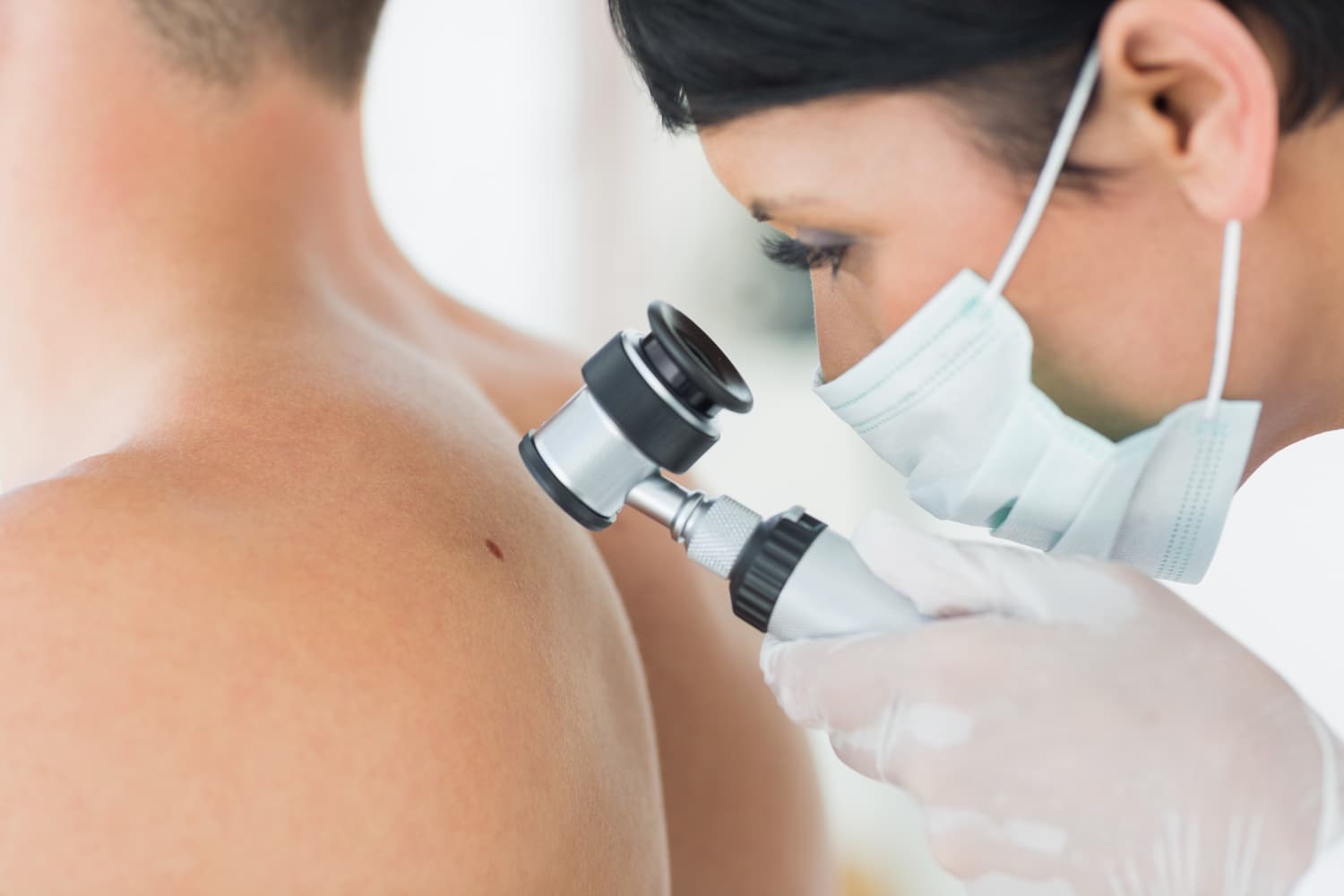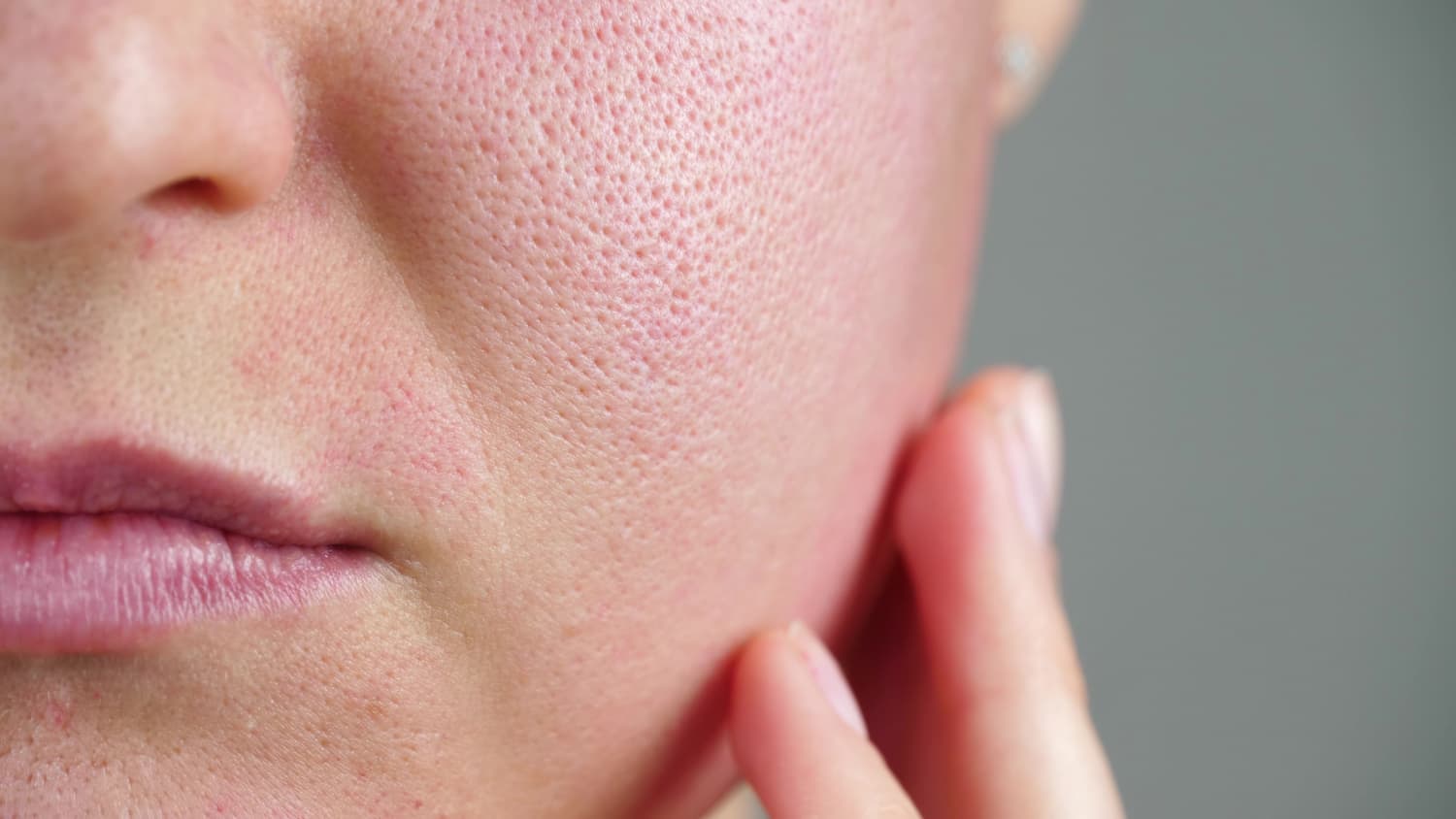Eczema causes inflamed, itchy, cracked, and rough skin. This very common condition can look and feel different on everyone. Sometimes people are embarrassed about the constant itch or red patches. They worry about how others will respond and may limit their social and professional interactions. Having eczema can impact a person’s emotional health. That’s why it’s important to better understand this non-contagious condition.
What Is Eczema
Eczema is an umbrella term for several inflammatory medical skin conditions that cause the skin to become inflamed or irritated. Eczema is a non-contagious condition that can look different on everyone and may appear in different areas of the body at different times. Generally itchy, eczema can be temporary or long-lasting and result in dry, sensitive or red, inflamed skin. Sometimes dark-colored patches or rough, scaly patches of skin occur. This type of rash will show itself by having swollen patches and blisters that are visible on just about any part of your body and generally appears on the arms and behind the knees but can appear anywhere on the body, including the face. Eczema signs and symptoms vary widely from person to person and include:
- Dry skin
- Itching, which may be severe, especially at night
- Red to brownish-gray patches, especially on the hands, feet, ankles, wrists, neck, upper chest, eyelids, inside the bend of the elbows and knees, and in infants, the face and scalp
- Small, raised bumps, which may leak fluid and crust over when scratched
- Thickened, cracked, scaly skin
- Raw, sensitive, swollen skin from scratching
The most common type of eczema is atopic dermatitis (AD). Atopic refers to a group of diseases with an often inherited tendency to develop other allergic conditions, such as asthma and hay fever. AD is a chronic, inflammatory skin disease that results in widespread rashes and patches of itchy skin, most commonly around the neck, face, and eyes in adults. It is uniquely and strongly associated with an individual or family history of asthma, hay fever, food allergy and/or other allergic diseases. AD leads to significant emotional burden in addition to pain, physical discomfort, and sleep disturbance for 16.5 million adults in the U.S., with 6.6 million reporting moderate-to-severe symptoms. Atopic dermatitis can strike children before their first birthday.
Who Gets It
Babies, children, and adults can all experience inflammation of the skin—over 31 million people in the U.S. have some form of eczema. Eczema is not contagious. so you can’t “catch it” from someone else. While the exact cause is unknown, researchers do know that people who develop eczema do so because of a combination of genes and environmental triggers. Eczema affects about 10% to 20% of infants and about 3% of adults and children in the U.S. One in 10 individuals will develop eczema during their lifetime, with prevalence peaking in early childhood.
Eczema usually begins during childhood and is known to be a hereditary condition that runs in families. Most cases develop in children under five and it’s more common for children to get eczema for the first time than adults. Most infants who develop the condition outgrow it by their tenth birthday, while some people continue to have symptoms on and off throughout life.
What Causes Eczema
There is no one, definitive answer as to why someone gets eczema. Healthy skin helps retain moisture and protects you from bacteria, irritants, and allergens. Eczema is related to a gene variation that affects the skin’s ability to provide this protection. This allows your skin to be affected by environmental factors, irritants, and allergens. In some children, food allergies may play a role in causing eczema. It’s generally considered to be a combination of factors including:
- Genetics (if a relative had it)
- Environment – living in areas with higher levels of pollution and/or colder climates.
- Defects in the skin barrier
Temperature changes can also present challenges for our skin—especially dry climates. Without a proper moisture barrier, dry skin can become irritated, inflamed, and even fissured (aka cracked). Many consequences stem from this. For example, we see people flock to our office with flares of hand eczema during the winter, where they present with hands that are bright red, itchy, and painful.
How to Treat It
There is no cure but evaluation by a certified dermatologist can help ease and control eczema with treatment. Depending on age and eczema severity, these treatments include over-the-counter (OTC) remedies, prescription topical medications, phototherapy, immunosuppressants, and biologic drugs. Many people with eczema also find success with specific natural and alternative treatments. Patch testing is also a great solution to help find the cause. For most types of eczema, managing flares comes down to these basics:
- Know your triggers so that you can avoid exposure
- Implement a daily bathing and moisturizing routine
- Use OTC and prescription medication consistently and as prescribed
How to Prevent Eczema
To help prevent symptoms, we need to limit hand washing with harsh soaps and moisturize daily with quality creams by Cerave, Aveeno, Eucerin, or Cetaphil. Even simple products like Vaseline (petroleum jelly) can help tremendously for the hands. Unfortunately, even when we abide by a routine strictly, we still may require a visit to the dermatologist for medicated ointments. As recommended by Mayo Clinic, these following tips may help prevent bouts of dermatitis (flares) and minimize the drying effects of bathing:
- Moisturize your skin at least twice a day.
- Try to identify and avoid triggers that worsen the condition.
- Infants and children may experience flares from eating certain foods, including eggs, milk, soy and wheat.
- Take shorter baths or showers and limit to 10 to 15 minutes.
- Use only gentle, mild soaps. Deodorant soaps and antibacterial soaps can remove more natural oils and dry your skin.
- Dry yourself carefully after bathing.
Could that itchy, scaly, bumpy rash be eczema? With proper treatment, the disease often can be controlled. At Affiliated Dermatology, located across the Valley in Scottsdale, Deer Valley, Old Town, Anthem, Surprise, Gilbert, Ahwatukee, and Tempe, AZ, our providers offer eczema relief for adults and children throughout the greater Phoenix area. For more information or to schedule an appointment, please contact us today!






